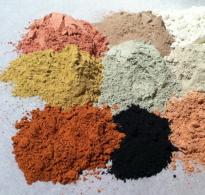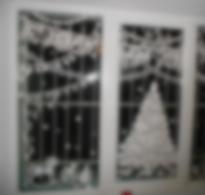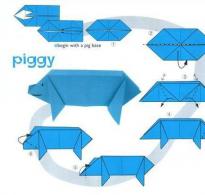Active recreation in human life. Health benefits of rest. Rest should be regular
A person’s need for rest is caused by fatigue, or more precisely, it is a consequence of this fatigue. Rest involves a person fulfilling one of his fundamental needs for relaxation, relaxation, and switching efforts and attention from one subject to another.
Thus, the need for rest is determined primarily by the biological nature of the human body, its physiology, as well as various kinds of psychological and social stress. A person's need for rest is inseparable from his opposite need - activity. In human activity, these needs are realized in the rhythmic alternation of activity-relaxation, wakefulness-sleep.)
As already mentioned, a person’s daily time budget must include a period (usually night time) for physiological rest associated with complete relaxation. This is an indispensable condition for restoring strength, eliminating fatigue, and preventing deep fatigue. Physiological rest becomes a means of reproducing a person’s vital functions, occupying non-working time. This type of rest, like a number of other primary needs (food, drink, hygiene procedures), create conditions for the reproduction of human activity, so they are not associated with leisure. Another thing is that a tired person can spend part of his free time during the day on passive rest (napping, relaxation).
The concept of rest is much broader than its physiological basis associated with passive relaxation. Rest can be realized through akcreative leisure forms, which is associated with the actualization of human social and cultural resources. For example, the replacement of one dynamic activity with another, as well as a change in the environment, a change in impressions, a distraction from everyday and monotonous worries, etc. is considered an active form of recreation. Active recreation is extremely effective - physical exercise, as well as a favorite activity, especially in the case if it is full of creative elements! Such rest and recovery processes provide a person with the opportunity to choose various activities in his free time, including those that are of a pronounced sociocultural nature, for example, aimed at communicating with other people, personal spiritual development, discovering creative potential, and doing what he loves (hobbies) or exercise.
Of course, active rest takes place in other forms than rest in a state of sleep and idleness; it is accompanied by rapid and deep restoration of strength, its consequences are constructive and become more sustainable. For such rest, as a rule, non-working days of the week, as well as vacation time, are used. During a period of short or long rest, when a person varies the choice of different activities in accordance with his preferences, his effective recovery occurs and his working capacity is restored. Thus, rest as a whole has a complex structure, influencing different - biophysiological, psychological, sociocultural - aspects of the personality structure. Rest only partially intersects with a person’s free time or leisure, generally going beyond their scope.
In a broad sense, the phenomenon of rest is close to the phenomenon recreationtions(from lat. recreation - return to health, restoration). Until recently, the concept of recreation remained uncommon, used only in narrow circles of specialists in human medical health. This concept was associated primarily with relaxation and regeneration of human vital and physiological forces.
Now recreation is understood as a person’s biological activity, which is aimed at restoring physiological, physical potential, at improving mental and spiritual forces that are weakened during work, monotonous activities or illness. Therefore, recreation is now interpreted as a holistic physical and socio-cultural recovery.
Recreational activity a person corresponds, firstly, to his needs and interests, secondly, to the traditions of his native culture, and thirdly, to the behavioral and evaluative standards of his immediate social environment. The recreational activity of an individual person consists of daily, weekly, annual and life cycles. At each stage of a person’s life, they form a complex network of diverse prerequisites and motivations that determine the nature, direction and effectiveness of recreational activity. This activity is considered effective if it results in restorative (recreational) effects.
Recreational effect manifests itself in the fact that a person experiences a feeling of vigor and satisfaction from the rest, since his body has reached the required level of energy exchange with the environment as a result of physiological and psychological recovery, achieving mental balance. A person experiencing a recreational effect is in a state of psychophysiological comfort, he has a feeling of balanced emotional and sociocultural self-esteem, and he is ready for new loads. Favorable emotions and high self-esteem are based not only on internal feelings, but also on a person’s understanding of the importance of social standards of work and rest.
Every living creature needs rest - man, animal and even the earth. This is how Nature intended. The plant and animal kingdoms rest at the right time. The Bible says that even God rested on the seventh day after the creation of the world. However, people often think that they can do without it. We rush through life with leaps and bounds, not thinking that it’s time to slow down and stop, at least for a minute. We don’t have time to admire the sunset on a summer evening, breathe in the aroma of cherry blossoms, or listen to the chorus of bird voices.
Have you noticed that in our age, when so many time-saving devices have appeared - telephones, faxes, washing machines, vacuum cleaners, dishwashers and dryers - people still do not have enough time? People seem to be in a hurry like never before. The stress of one day usually carries over into the next day, and the next... and the next. This is why many people tend to get so tired during the day and suffer from chronic fatigue and chronic illnesses. I was just like these people - constantly tired and suffering from constant stress. Fortunately, I caught it in time. It was still possible to fix everything. I learned to rest and relax. As a result, my condition changed dramatically. All past symptoms disappeared and my blood pressure returned to its previous levels in just a few weeks. Sounds incredible!
Adequate physical and mental rest is extremely important for well-being. Scientific studies have found that physical and mental relaxation reduces your body's need for oxygen by 50 percent, relieves stress on the heart by 30 percent, and lowers blood pressure. Deep relaxation also reduces the level of lactic acid aldehydes in the blood, which are caused by anxiety, neurosis and high blood pressure. Research has also demonstrated that rest synchronizes the brain's electromagnetic waves, improves reaction time, and improves both short-term and long-term memory. People who have the opportunity to rest sleep better, have more physical energy and better health. Is it worth saying that rest helps improve relationships in the family and in society, relieving irritability? There is no doubt that rest and the ability to relax improve your health and life.
First of all, you must learn to give your brain a rest. Every day we should take time for contemplation and meditation. Most people cannot work productively for more than one hour without taking a break. Concentration begins to weaken, and long work without rest ceases to bring the desired results. While working, it is necessary to take regular short breaks.
Employers will find that their employees will work more focusedly and make fewer mistakes if they are allowed to take regular short breaks during the workday. Ten-minute breaks have a beneficial effect not only on your health, but also on the quality of your work. It is necessary to rest your tired bones and restless mind. It's a little holiday for your brain, calming your nerves and filling you with energy.
Just because you sleep a lot doesn't mean you're well-rested. Sleep is very important, most people need six or eight hours of sleep every night, but true rest requires peace, otherwise your mind will continue to worry even while you sleep. Most people worry about little things, and this saps their energy and robs them of their rest.
There is a simple formula on how to stop worrying and develop a peaceful attitude towards life.
It consists of two principles. First principle: Don't worry about the little things in life. And the second principle: Remember that everything in life is just little things. We must learn to take things less seriously. And when we feel stressed or desperate, we should ask ourselves:
Will this matter to us in ten years? If it doesn’t, then it’s definitely a small thing, and therefore you shouldn’t waste time worrying about it. In order to give rest to our mind and body, we must live only for today. Jesus said, “Give us this day our daily bread.” Not yesterday and not tomorrow, but only today. We must learn to live only for today. We will not be able to rest if we are constantly ruminating about the past or worrying about the future. Another important thing that gives us confidence that we are getting enough rest is the ability to devote every seventh day to complete rest. On this day we must forget about all official troubles, bills and worries. Dedicate every seventh day to your family, enjoy life and relieve stress. Just one day a week. It seems so simple, but it is very important. All the great religions of the world talk about the seventh day - the day of rest. Obviously, God gave us Sunday so that we remember that it is time to stop, contemplate life and relax. It is a sanctuary where we can find peace in ourselves and in the world.
The secret of True Health is the power of rest and relaxation.
True Health is impossible if the brain and body do not rest.
Once, in a conversation with an acquaintance, I heard an absurd statement, he said - why do we need rest at all, we sleep, the body rests, people came up with rest, vacations and vacations with one goal - to make money from it.
Why does a person need rest?
No, this person is quite successful; rather, he is too passionate about his work, which is more pleasant for him than any rest. He says that he considers any vacation a waste of time, because it is better to work on a favorite project than to spend half a day doing nothing on the beach, for example.
Personally, I believe that no matter how beloved and enjoyable our work is, we simply need rest. When we were still schoolchildren we looked forward to the holidays, then at work we looked forward to vacation.
Rest brings refreshment, joy and strengthens our health and our inner strength.
But, you must admit, not everyone here knows how to relax. And you don’t have to look far for an example.
My father is waiting for the weekend, and on the weekend - to the dacha, and from the dacha he goes with pain in the lower back and during the week receives treatment, so that on the weekend... he can go to the dacha again.
It goes without saying that a vacation for him is, first and foremost, a dacha. So where is the rest?
Most of our people simply do not know how to use vacations and days off for their intended purpose. But work is work, and without rest we risk resting, but this rest will be in a hospital bed...
If you do not rest, ignore the symptoms of fatigue, fatigue will not go away on its own - it tends to accumulate, and the body will definitely demand its own and as a result - your performance will decrease, you will have a loss of strength, your mood will deteriorate for no apparent reason, irritation will appear and... all this is just the beginning.
One thing is clear: even in a job you love with such potential for development and progress, you shouldn’t expect it.
But what is real relaxation? Rest is not your absence from work, but a change in lifestyle.
Some buy trips to exotic countries for this, others believe that in order to relax it is not at all necessary to go to distant lands, but you can have a great rest in our country, for example, in the Kislovodsk sanatorium with restaurant meals, where everything is included in the trip, and you All that remains is to enjoy the beauty of nature and at the same time take useful health procedures that restore your body.
Such a trip to a sanatorium will not cost more than a trip abroad, but the benefits of a wellness holiday are much greater.
There is an opinion that your vacation should be the complete opposite of what you do in everyday life.
If everyday work involves physical activity, then you shouldn’t climb mountains on vacation - you should choose passive relaxation - in a sanatorium or on the seashore.
If you have a sedentary job and have to sit still most of the day, here you should think about mountains and forest hikes.
The main thing in finding ways to relax is to listen to your body - it will definitely tell you what it needs most - sleep and relax, or ride a bike or horse.
When you are resting, you should not indulge yourself with tasty, but some not very healthy food - give your body the opportunity to rest, arrange fasting days of healthy food for it.
And in order to ensure that the positive emotions you receive during your vacation do not leave you throughout the year, do not forget to take photographs.
Enjoy your holiday!
When we are busy at work and completely immersed in household chores, we do not notice how exhaustion sets in. We begin to forget how good we can feel doing the same amount of work but having regular rest.
A person should not sit still: monotony is as tiring as hard physical labor. Most people go to work that can hardly be called interesting. And not everyone does what they like.
It’s great when your lifestyle and routine suit you. In this case, you are balanced and happy with what you are doing. But what if you are tired and find your work tiring and even depressing. It takes up all your time and there is no time left for other things. There is no light, what will happen next?
Konrad Lorenz said that the problem of modern man is that he works too much. How could it be otherwise, you ask? After all, you need to provide a decent life for yourself and your family! But, it can be assumed that the great scientist wanted to say that we are always in “work mode”. We think about work even at home, we remember it in the evening, at family dinner, we discuss our least favorite job with friends.
If you are lucky and you are doing what you love, there is nothing wrong with devoting your personal time to this business. But if you're not excited about what you're doing, then allow yourself to forget about work! You should banish any thoughts about the workplace from your head. Don't worry about schedules and deadlines. Be happy to switch to household chores as if it were your only obligation.
Spend time with friends and family as if that's all there is to it, completely immerse yourself in the atmosphere of a family dinner, an evening movie or a weekend walk. This is a change in type of activity. If, while preparing dinner, you think about the chef’s instructions, you will not succeed in anything: dinner will be prepared with indifference, and this will not benefit the dishes. Moreover, the work will remain undone.
So, the main task is to learn to fully devote yourself to your work! If you are in the kitchen and cooking, get creative and experiment with dishes - this will add interest and fun to cooking, it will turn into relaxation! Cook your favorite dishes - the anticipation of delicious food lifts your mood. Cleaning and other household chores can be turned into a fun game with children if you involve them in this activity. You will notice how quickly they get down to business and how glad they are to receive your approval and gratitude!
But sometimes you should definitely take a real vacation. Visit relatives, friends, go traveling. After all, how amazing it is to put on a bathing suit in a rainy autumn and escape from cloudy rainy everyday life to a sunny beach. A week, two, preferably more - rest, relax, do what brings you pleasure! You will notice that in this mode your work will become more productive. It will be easier for you to concentrate on work if you know that a wonderful evening with your family or quiet hours with your favorite book awaits you at home. Forget about work if you want it to become desirable. Go on vacation!






